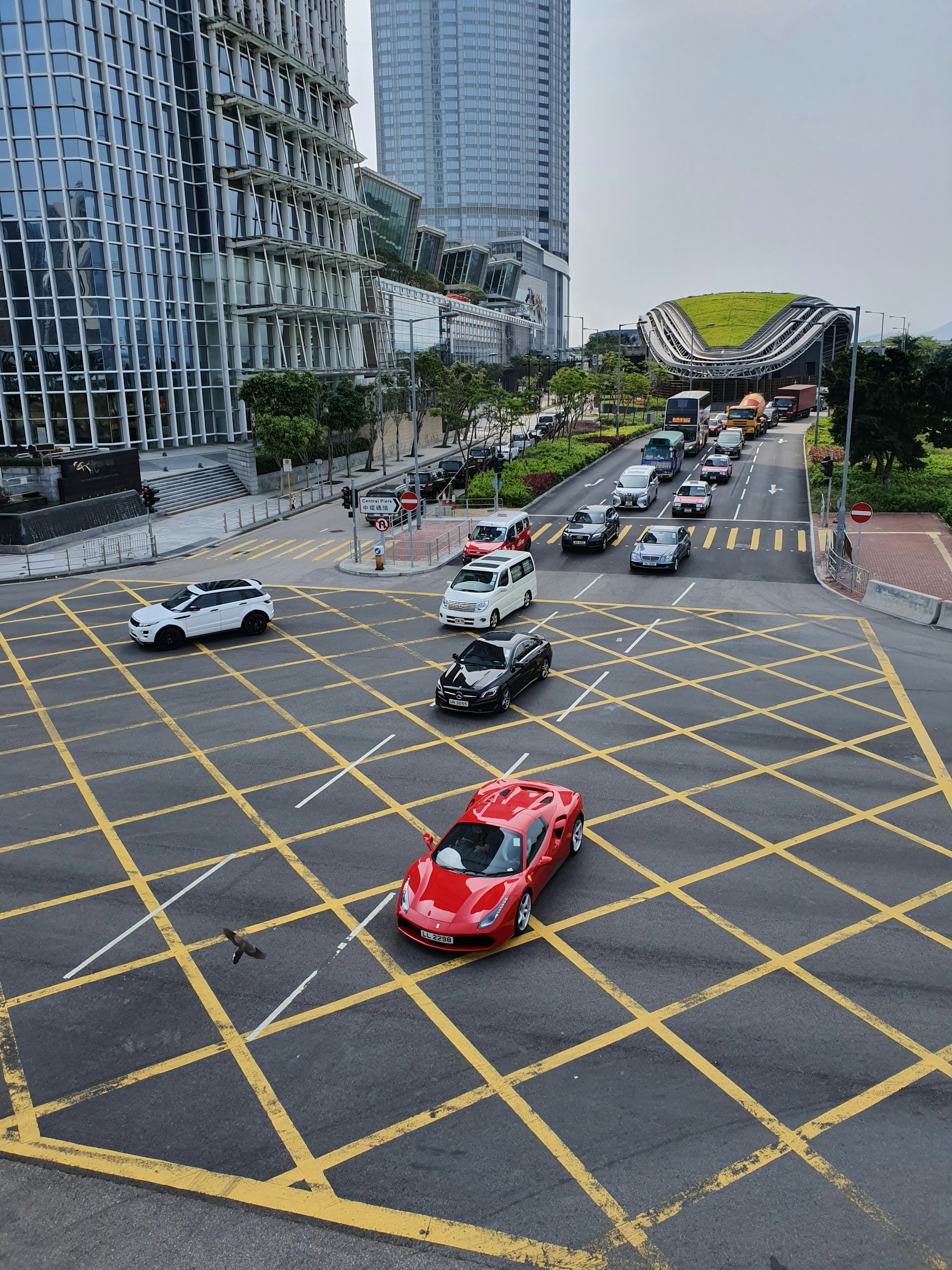Unlocking Economic Value: The True Impact of Hosting Major Tournaments

Photo by Joachim Schnürle on Unsplash
Introduction
Hosting major tournaments such as the FIFA World Cup, Olympic Games, or continental championships can be a transformative opportunity for cities and nations. While the promise of economic growth is compelling, understanding the true economic impact requires a careful look at both the costs and the benefits, along with the practical steps for maximizing positive outcomes. This article offers a comprehensive, actionable guide for policymakers, business leaders, and local communities looking to leverage major tournaments for sustainable economic development.
Understanding the Costs: Infrastructure and Investment
The financial commitment required to host a major tournament is significant. Large-scale events often entail extensive investment in transportation infrastructure , including airports, highways, and public transit systems. For example, the London 2012 Olympics saw over $7 billion invested in transportation improvements, from new rail lines to expanded networks, designed to handle the influx of visitors and ensure efficient movement during the event [1] .
Equally substantial are the construction costs for sports venues and related facilities. These must meet international standards, often requiring state-of-the-art technology and design. Host cities may revitalize entire neighborhoods or build new districts to accommodate these venues, as seen with the 2014 Sochi Winter Games, which exceeded $50 billion in total costs [1] .
Beyond direct costs, hosts must consider security , services , and operational expenses. The 2018 World Cup in Russia required about $11.6 billion in preparation, with $6.11 billion allocated to infrastructure and $3.45 billion to stadiums [2] .
Economic Opportunities: Tourism, Hospitality, and Jobs
Despite the high upfront investment, hosting major tournaments can unlock substantial economic opportunities across multiple sectors. One of the most immediate benefits is the surge in tourism . The 2016 Rio Olympics attracted over 500,000 international visitors, generating approximately $1.2 billion in tourism revenue and leading to a 6.2% rise in tourism income during a global recession [1] . Similarly, the 2018 World Cup contributed $14.5 billion to Russia’s GDP, equivalent to 1.1% of the total for that year [2] .
The hospitality sector -hotels, restaurants, and entertainment venues-often experiences increased demand, not just during the event but for years afterward thanks to boosted international awareness. The exposure generated by global media coverage can sustain tourism growth well beyond the tournament itself.
Major tournaments also create jobs , both temporary and permanent. For instance, the eight World Cup matches at MetLife Stadium in New Jersey are projected to support more than 14,000 jobs and generate over $2 billion in economic impact for the NY/NJ region [4] . Smaller cities, such as Frisco, Texas, demonstrate that not only large urban areas benefit-regional economies can see significant gains when hosting niche or collegiate events.
Long-Term Benefits: Infrastructure and Urban Development
Infrastructure improvements associated with major tournaments frequently deliver lasting economic benefits. Investments in transportation, stadiums, and urban revitalization can attract new businesses and improve quality of life for residents. For example, the legacy of improved public transit in London has continued to benefit the city’s residents and businesses long after the 2012 Olympics [1] .
Additionally, hosting international events can enhance a city’s or nation’s global image, making it more attractive to foreign investors. The influx of media attention and visitors serves as a showcase for local culture, traditions, and investment potential [3] .
Challenges and Risks: Debt, Inflation, and Sustainability
While the benefits are substantial, hosting major tournaments is not without risks. Large expenses and increased public debt can strain local economies, especially when projected revenues do not materialize. Inflation and cost overruns are common challenges, as seen in the budgets for the Sochi, Rio, and Beijing Games [1] .
Long-term economic impact may be modest or short-lived. For example, Russia’s GDP increased following the World Cup but projections indicate only limited direct economic benefits in subsequent years [5] . Cities and countries must carefully assess whether the infrastructure improvements and tourism boosts will continue to pay dividends after the event concludes.
Other risks include underutilization of venues (“white elephants”), displacement of local populations, and opportunity costs if resources are diverted from essential public services. It is crucial for stakeholders to adopt robust risk management and legacy planning strategies to maximize positive outcomes.
Maximizing Economic Impact: Actionable Steps for Hosts
To ensure a positive economic legacy, hosts should take the following steps:

Photo by MiguelPhoto on Unsplash
- Conduct Rigorous Impact Assessments: Use established methodologies, such as those recommended by AISTS and OECD, to evaluate potential economic outcomes, justify public investments, and ensure accountability to citizens [3] .
- Plan for Post-Event Legacy: Design infrastructure and venues with flexible, multi-use capabilities to avoid underutilization. Consider long-term community needs during planning.
- Engage Stakeholders: Involve local businesses, residents, and public officials in decision-making. Provide transparent communication about expected costs, benefits, and risks.
- Leverage Media Exposure: Develop campaigns to promote post-event tourism and investment, capitalizing on international attention to build sustained growth.
- Monitor and Evaluate: Track key performance indicators (KPIs) such as job creation, tourism revenue, and infrastructure utilization before, during, and after the event.
For those seeking further guidance, consider reaching out to your city’s economic development office, regional sports commissions, or national tourism boards. Many organizations provide toolkits and case studies to support planning and legacy management for major tournaments.
Alternative Approaches and Solutions
Not all cities or regions may have the resources to host global mega-events, but alternative approaches exist to capture economic benefits:
- Host Smaller-Scale Tournaments: Regional and collegiate events can deliver significant local impact with lower financial risk. Frisco, Texas’s experience with NCAA and bowl games illustrates this strategy [4] .
- Share Hosting Responsibilities: Joint bids among multiple cities or countries can distribute costs and benefits more evenly, as seen with the coordination between New York and New Jersey for World Cup matches.
- Focus on Sustainable Development: Prioritize green infrastructure, community engagement, and long-term urban planning to ensure lasting benefits and minimize negative impacts.
Accessing Opportunities and Services
If you are a local business, entrepreneur, or stakeholder interested in capitalizing on upcoming tournaments:
- Contact your city’s economic development office for information about business licensing, vendor opportunities, or partnership programs related to major events.
- Reach out to your regional tourism board for guidance on marketing and hospitality services to attract visitors before, during, and after the event.
- Monitor official announcements and public hearings for updates on infrastructure projects, job opportunities, and community involvement programs.
To find specific programs, search for terms like “major tournament business opportunities,” “city name economic development,” or “sports commission vendor registration.” Many cities maintain dedicated event portals and hotlines for inquiries.
Key Takeaways
Hosting major tournaments presents both opportunities and challenges. By understanding the true costs, leveraging economic opportunities, and adopting strategic planning, stakeholders can maximize the positive impact on tourism, jobs, infrastructure, and global reputation. While risks exist, a balanced approach and robust legacy planning can help ensure long-term economic value for cities and regions.
References
- [1] HLB Global (2023). The economic impact of hosting large sporting events.
- [2] Foreign Trade Journal (2021). Economical impact of sport events: Evidence from Euro, World Cup.
- [3] AISTS (2023). Sports events’ economic impact methodology as the world standard.
- [4] Community Playmaker (2024). The economics of large sporting events.
- [5] Scientific Research Publishing (2024). Assessing the impact of hosting global sporting events.
MORE FROM couponnic.com













